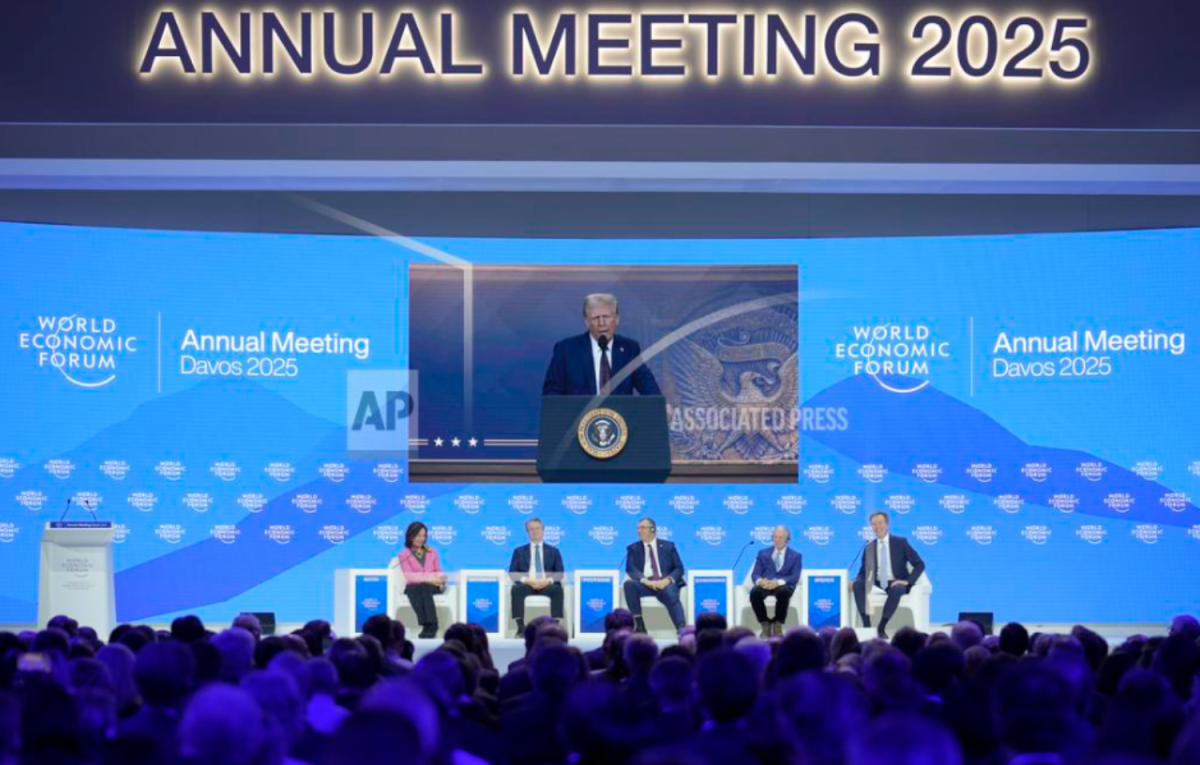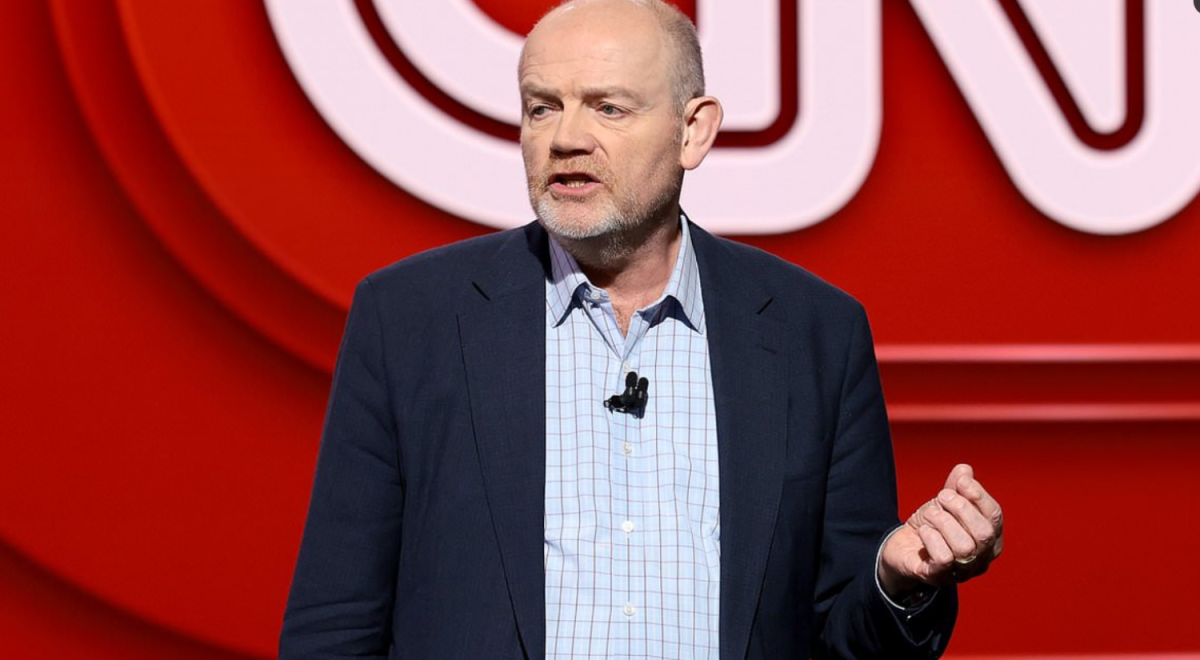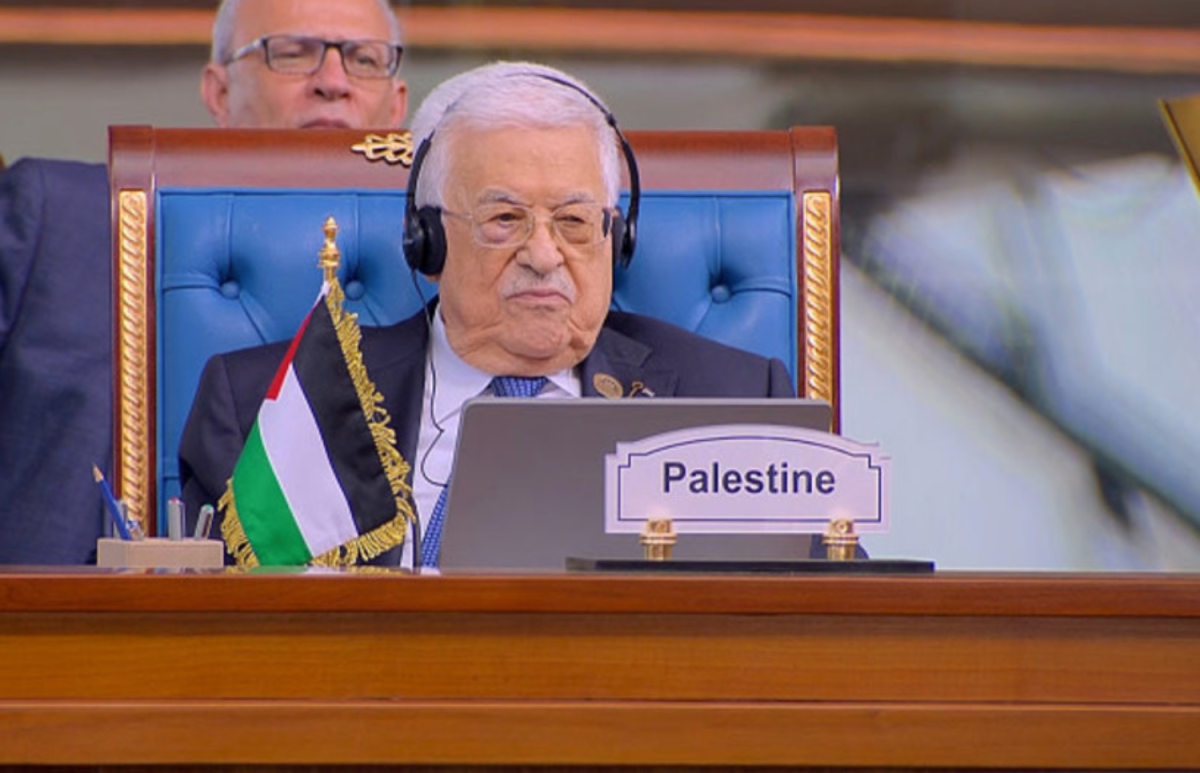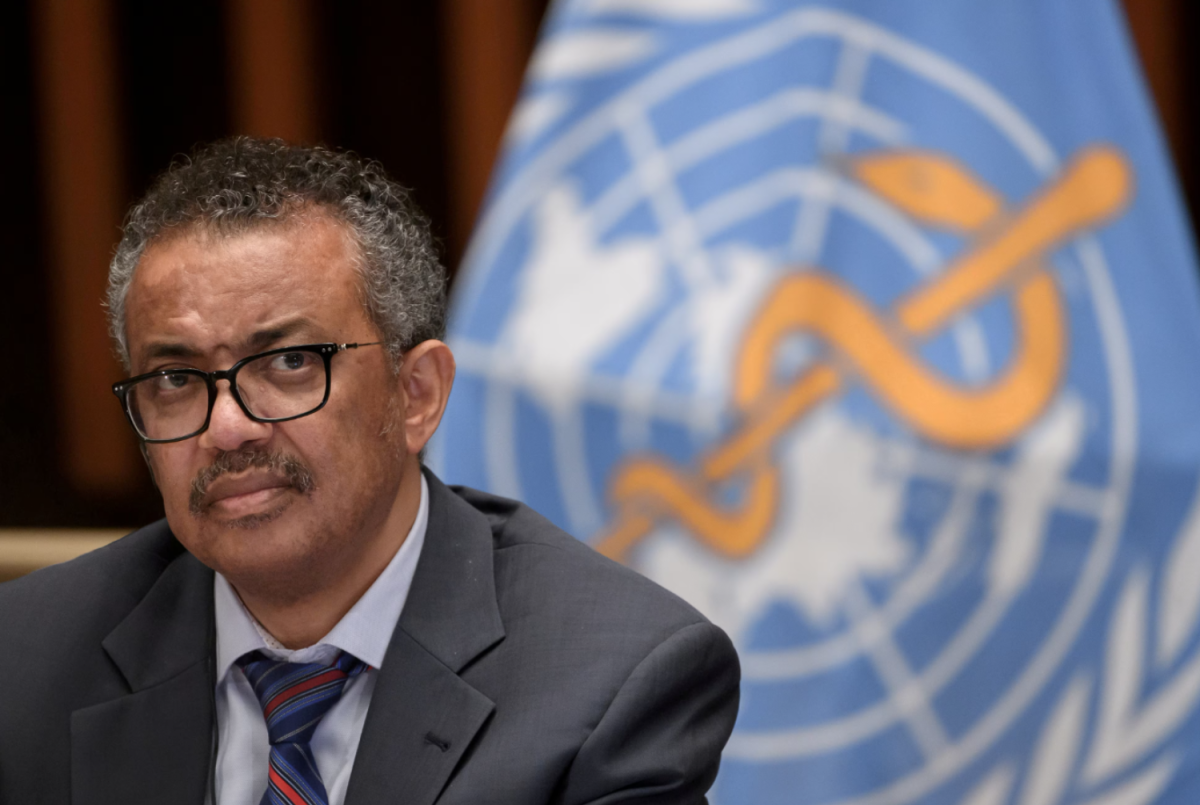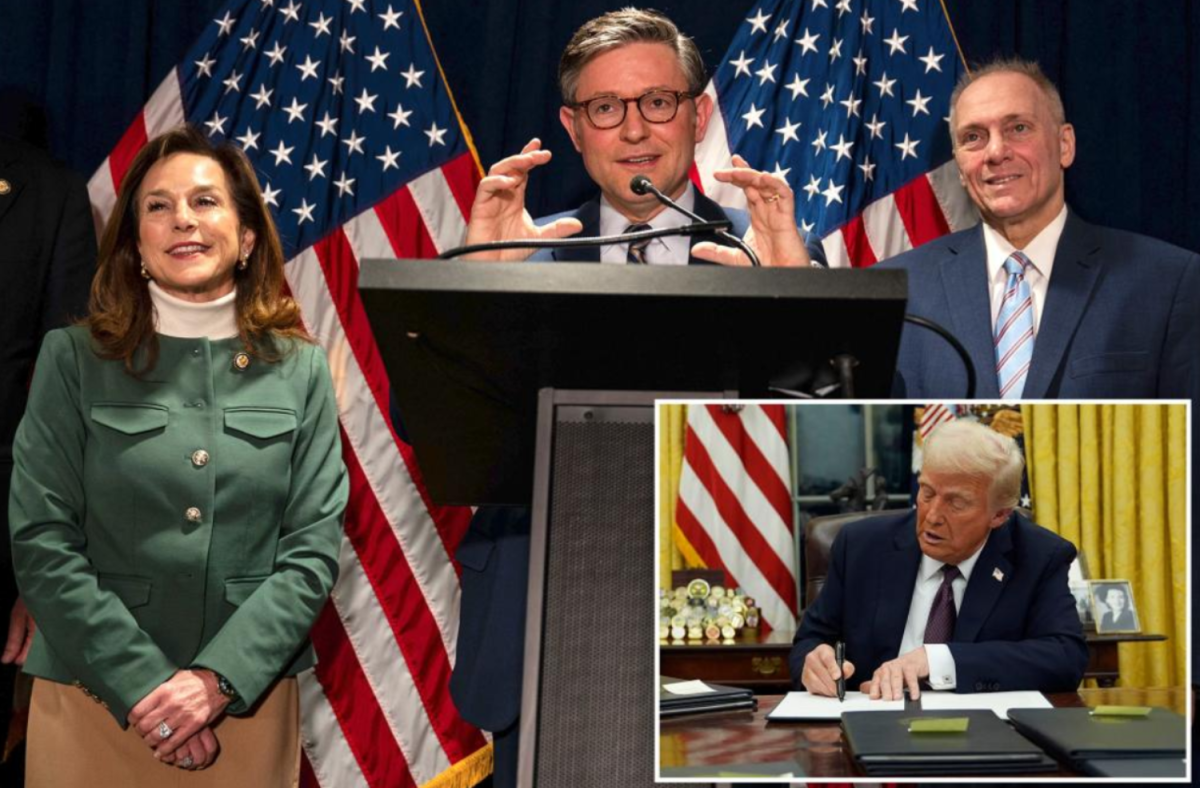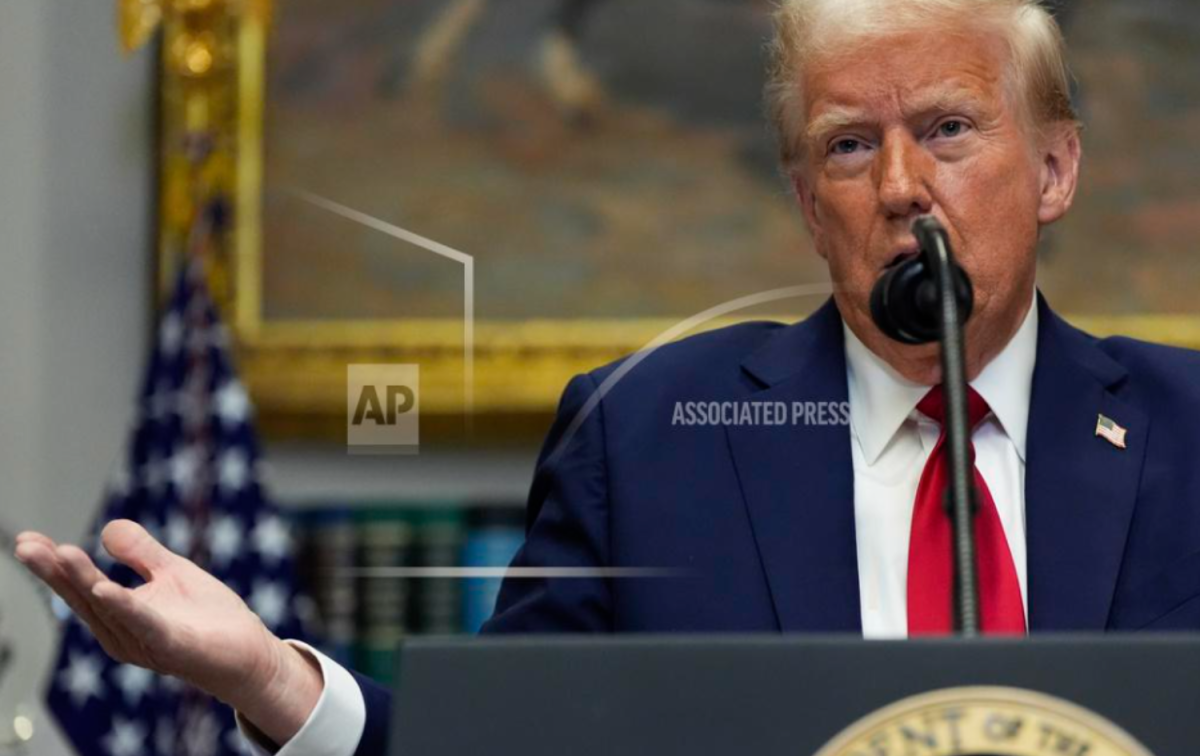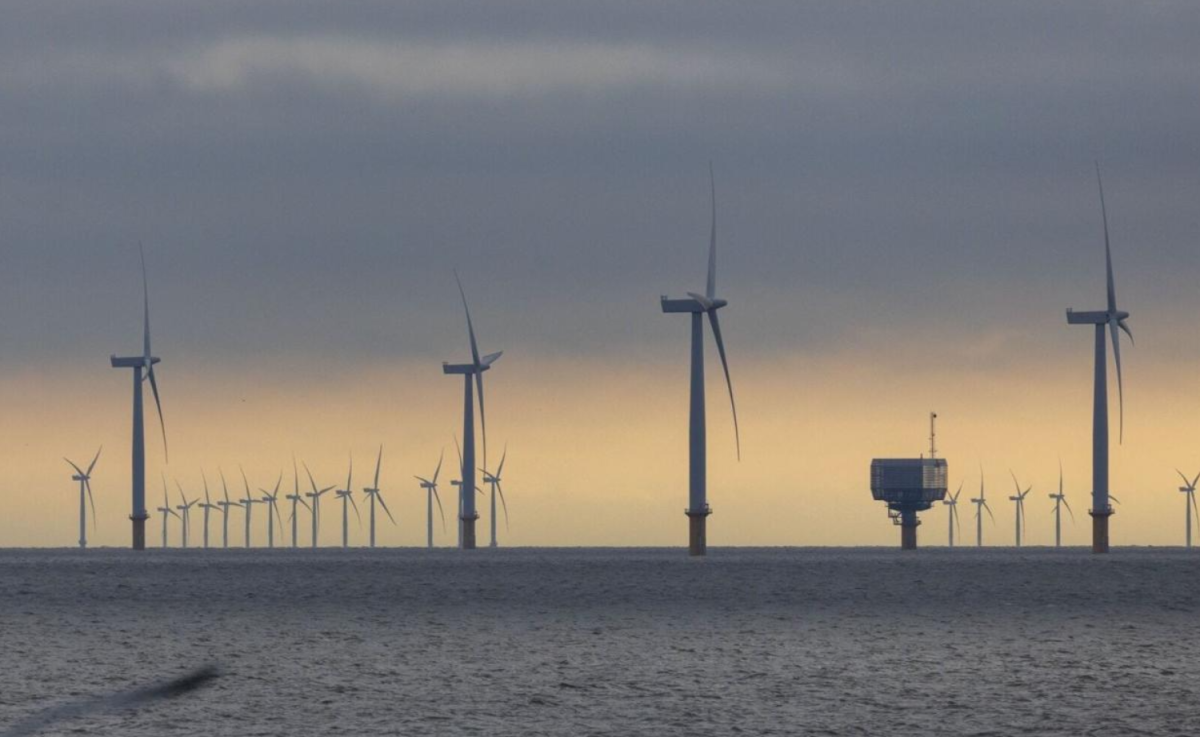-
Posts
10,806 -
Joined
-
Last visited
Content Type
Events
Forums
Downloads
Quizzes
Gallery
Blogs
Everything posted by Social Media
-
In an unprecedented move, U.S. private security contractors are set to operate a critical checkpoint in Gaza, deploying armed personnel to the enclave as part of a broader multinational effort. According to two Israeli officials and a source with direct knowledge, the initiative is expected to commence in the coming days. This marks the first time in decades that U.S. private security companies will take on such a role in Gaza. The contractors' involvement comes under the framework of the Gaza hostage and ceasefire deal, brokered by the United States, Egypt, and Qatar. Their primary responsibility will be to inspect Palestinian vehicles traveling from southern Gaza to northern Gaza, ensuring that no rockets or heavy weapons are being transported. This arrangement reflects an attempt to balance security concerns with the need for displaced Palestinians to return to northern Gaza. The history of U.S. operations in Gaza has been fraught with challenges. In 2003, three U.S. government security guards lost their lives in an attack on an American convoy, an incident attributed to Hamas by Israeli officials. Since then, U.S. governmental or affiliated activities in Gaza have been significantly restricted due to security concerns. This recent development addresses a key impasse in the ongoing ceasefire negotiations. Israel insisted on security checks for Palestinians returning to northern Gaza via the Netzarim corridor, a vital route south of Gaza City. Hamas initially rejected this demand. The compromise reached allows vehicles to access northern Gaza through a single road, subject to inspections at a checkpoint operated by a neutral third party. A source familiar with the matter described the consortium's role as overseeing and securing vehicle inspections along Salah al-Din Road, which facilitates the safe return of displaced Palestinians while ensuring no weapons are transported northward. The multinational security consortium comprises three private companies selected by the U.S., Egypt, and Qatar, with the agreement of both Israel and Hamas. One of the U.S. companies involved, Safe Reach Solutions (SRS), has developed the operational plan for the checkpoint. Another, UG Solutions, specializes in armed security and employs personnel with backgrounds in U.S. military special forces, alongside others of varied nationalities. Additionally, an Egyptian security company approved by Egyptian intelligence will contribute to the initiative. There are indications that more companies or nationalities could join the consortium in the future. The U.S. contractors' role is expected to last until the conclusion of the hostage deal's first phase. This timeline could extend if a second phase is negotiated, potentially including a complete Israeli withdrawal from Gaza, or if hostilities resume. A source emphasized the multinational consortium’s impartiality, highlighting its role as a symbol of international support for the ceasefire. "The consortium underscores its commitment to peace, ensuring adherence to the ceasefire agreement and fostering long-term stability in Gaza," the source stated. This deployment reflects a collaborative effort to navigate complex security and humanitarian challenges, aiming to establish a framework for stability in a volatile region. Based on a report by AXIOS 2025-01-25
-
Donald Trump's appearance at the World Economic Forum (WEF) may have been virtual, but its impact reverberated throughout the gathering. For three days, he loomed over discussions, dominating conversations from afar. On the fourth day, he addressed the forum directly from the White House, delivering a speech that left no doubt about his administration's combative stance on global economic relations, particularly with Europe. The forum, known for its mix of global financial leaders, political figures, civil society representatives, and celebrities, witnessed a speech brimming with confidence in U.S. economic power. Trump launched a direct challenge to those not aligned with his vision. Initially adhering to familiar themes of his domestic agenda, Trump soon shifted his focus. Spurred by a question from Stephen Schwarzman, co-founder of Blackstone Group and a former adviser, he addressed the frustrations of many businesses over European Union regulations. Trump criticized what he viewed as unfair trade practices and taxes imposed on American companies. “They don’t take our food, they don’t take our cars, but they send us cars by the million,” he declared, pointing to what he described as a trade imbalance. He also took aim at EU demands for $15 billion in back taxes from Apple and ongoing investigations into American tech giants like Google and Facebook. “These companies, like them or not, are American companies. Nobody’s happy with it, and we are going to do something about it,” he asserted. While emphasizing his frustrations, Trump also presented a stark offer to businesses. He proposed a corporate tax rate of just 15% for companies willing to shift their manufacturing to the United States, coupled with the threat of tariffs for those that chose otherwise. This bold proposition underscored his commitment to reshaping global trade in America’s favor, even if it risked retaliatory measures. In the audience, leaders from the European Central Bank, World Trade Organization, International Monetary Fund, and various government officials reacted with visible unease. Trump’s rhetoric was unapologetically disruptive, making clear his intention to challenge the status quo. As if to underscore his point, Trump highlighted a massive $600 billion investment promise from Saudi Arabia's Crown Prince Mohammed bin Salman, suggesting he “round it up to a trillion.” He positioned this as a testament to America’s economic appeal and its ability to command significant global investments. Trump did briefly touch on the pressing issue of the war in Ukraine, referring to the "millions of dead bodies lying on the flat fields" and calling for peace efforts to begin. However, he offered little clarity, remarking that the path to peace lay with Russia. “Ukraine is ready,” he added, leaving the audience to grapple with the implications. As the forum drew to a close, attendees departed Davos under no illusions about the disruption Trump’s policies could bring. The week had started with speculation about what a potential second Trump term might mean for the global order. By its end, delegates from across the spectrum of money, power, and influence had a clearer picture: one defined by disruption, unpredictability, and an unwavering push for American dominance. Based on a report by Sky News 2025-01-25
-
A recent report claims that as many as one in 12 people living in London could be illegal migrants, amounting to an estimated 585,000 individuals. This startling figure highlights the capital’s status as a hub for undocumented migration, with 60% of all illegal migrants in the UK believed to reside in the city. The study, commissioned by Thames Water, provides estimates suggesting that between 390,355 and 585,533 people in London meet the criteria for being illegal migrants. Most undocumented individuals are thought to have initially entered the UK legally on work, study, or visitor visas but later overstayed their permitted durations. The findings were obtained through freedom of information-style requests and aim to shed light on the scale of undocumented migration in the capital. The Home Office itself does not release specific data on illegal migrant numbers, making this report a rare insight into an issue that is often difficult to quantify. Nationally, the study estimates that approximately 1 million unauthorized migrants could be living across the UK, with London accounting for the majority. However, migration experts have suggested that even these figures might be conservative, as much of the underlying data dates back to 2017—prior to the significant increase in Channel crossings. The research was initially conducted to identify “hidden” and “transient” water users in London, aiming to improve the utility provider’s ability to meet customer demands. By analyzing National Insurance registrations from non-EU nationals, the study pinpointed irregular migration patterns across the city’s boroughs. There are numerous pathways through which individuals can become illegal migrants in the UK. These include overstaying work, study, or visitor visas, entering the country illegally, or remaining in the UK after an asylum claim has been rejected. Additionally, children born in the UK to undocumented parents may also be considered illegal migrants under the law. Although precise figures are challenging to determine, most undocumented migrants are believed to originate from regions such as Asia, sub-Saharan Africa, and the Americas. The situation has been further exacerbated by an ongoing rise in Channel crossings. On Tuesday alone, the Home Office reported that 129 migrants crossed the Channel, with many more arrivals the following day. The issue has put significant political pressure on the UK government. In 2024, Prime Minister Sir Keir Starmer vowed to reduce both legal and illegal immigration. However, critics argue that the Labour Party has yet to implement sufficient measures to address the problem. When questioned by reporters, Mr. Starmer defended his government’s approach, stating, “Cutting immigration will only be done with a serious plan.” He emphasized that targeting criminal smuggling networks remains one of the most effective strategies to combat illegal immigration, underscoring the need to disrupt these operations at their roots. As the debate over immigration continues, the report’s findings highlight the complexity of managing London’s growing population and the broader challenges of addressing undocumented migration across the UK. Based on a report by The Standard 2025-01-25
-
CNN is undergoing significant upheaval, with 200 staff members from its TV division being laid off as part of CEO Mark Thompson’s ambitious plan to reshape the network’s focus. According to an insider, the layoffs are a response to a bloated and overstaffed organization, where some employees have been accused of contributing minimally. “Layoffs all the time – they needed to cut the fat,” the source told *DailyMail.com* after Thursday’s firings. The insider described CNN as “very duplicative” and a “money pit,” underscoring the network’s inefficiency. Thompson, formerly CEO of *The New York Times* and the BBC, is steering CNN toward a digital-first strategy. In a statement to *The New York Times*, he confirmed that the layoffs are part of a broader restructuring aimed at prioritizing CNN’s digital presence over traditional TV operations. A new streaming service featuring CNN’s top stars is reportedly in the works. Despite the major shake-up, it remains unclear whether any prominent TV personalities were included in the layoffs. Thompson did, however, announce a significant programming change: Jim Acosta’s 10 a.m. hour will be replaced by *The Situation Room with Wolf Blitzer and Pamela Brown*. While rumors had previously circulated about Acosta’s future, Thompson confirmed that discussions about a new role for him are ongoing. The network is also preparing to replace those laid off with individuals who possess a more digital-focused skill set. Thompson emphasized that adapting to digital consumption is critical for CNN’s survival, stating, “If we do not follow the audiences to the new platforms with real conviction and scale, our future prospects will not be good.” CNN’s shift comes amid declining ratings and stiff competition. Following a turbulent political landscape marked by the Trump presidency and the Biden administration, CNN has lost ground to rivals Fox News and MSNBC. Ratings have dropped more than 20% since Thompson’s arrival in 2023, with election night coverage seeing even steeper declines. In a memo obtained by *The LA Times*, Thompson acknowledged the challenges, writing, “The changes we’re announcing today are part of an ongoing response by this great news organization to profound shifts in the way audiences in America consume news. It’s the early days, but we’ve already established that there’s immense demand for it not just in America but around the world.” To further its digital ambitions, CNN is also planning a subscription-based product featuring lifestyle content. This follows the launch of a $3.99 paywall on its website in October, part of the network’s efforts to diversify revenue streams. Thompson’s vision for CNN centers on providing audiences with the news they want, when they want it. He believes a streaming platform could address the constraints of traditional TV schedules and better meet the demands of a modern audience. While some industry insiders speculate about the potential departure of high-profile figures like Acosta, CNN has yet to confirm any such moves. For now, the network’s focus is on embracing digital transformation and navigating what Thompson called an “existential question” about how to stay relevant in a rapidly changing media landscape. As CNN continues its transition, the layoffs—amounting to 6% of the workforce—mark another chapter in its ongoing reinvention, one that may redefine how it delivers news in the years to come. Based on a report by Daily Mail 2025-01-25
-
A sweeping executive order issued by former President Donald Trump has left hundreds of transgender federal prisoners facing uncertainty and fear. The directive, signed on Trump's first day back in office, mandates that federal prisons classify inmates strictly by biological sex, disregarding gender identity. For transgender inmates, this policy shift means relocation to facilities that match their birth sex, causing widespread panic and concern. Attorney Moira Meltzer-Cohen, who represents Donna Langan—a transgender woman serving a life sentence in federal prison—voiced grave concerns about the order's implications. "It's going to be incredibly dangerous," she said. Langan, a former member of the neo-Nazi Aryan Republican Army, underwent gender-affirming surgery while incarcerated. Meltzer-Cohen warned of potential violence, saying, "I fear there could be a bloodbath if trans inmates are forced into male prisons." The executive order declares that only two sexes—male and female—will be recognized in government policy. Spaces designated for women, including bathrooms and prison facilities, will now be determined solely by biological sex. The directive also cuts federal funding for transition-related medical services and bars the use of terms like "gender" in favor of "sex." An email obtained by DailyMail.com from a federal public defender in Massachusetts highlighted the immediate impact of the policy. The email, written by public defender Sandra Gant, described the panic of a transgender inmate in Minnesota. "Her family reached out in a panic," Gant wrote. "As of this morning, she and others at FCI Waseca have been segregated and told they are being processed for transfer to a men's prison. She is terrified." Gant called on colleagues to prepare legal challenges to the policy, asking if organizations like the ACLU might be pursuing litigation. "Has anyone prepared to litigate this, or have any insights or advice on challenging this?" she inquired. The Bureau of Prisons estimates that there are approximately 1,500 transgender women and 750 transgender men in federal custody. With transfers imminent, legal advocates are scrambling to find ways to protect these individuals, who face heightened risks of assault and discrimination in facilities aligned with their birth sex. The order has drawn starkly polarized reactions. Conservative groups have lauded the policy as a return to "common sense," while transgender advocates view it as an assault on their rights. Meanwhile, Rhonda Fleming, a cisgender female inmate at Carswell Federal Medical Center in Texas, expressed relief over the new policy. Fleming, who had previously filed a lawsuit to remove transgender women from her facility, argued that biological women like herself face stress and fear in shared spaces with trans inmates. Her lawsuit, however, was dismissed just days before Trump signed the executive order. "What the judge did Wednesday was a farce," Fleming said in an interview. "It was a mockery of justice." She also claimed that some male inmates falsely identify as transgender to gain access to women’s facilities. Trump’s executive order represents a sharp departure from the policies of the Biden and Obama administrations, which had advanced protections for transgender individuals. The rollback has amplified fears within the transgender community, with many questioning the broader societal implications of these changes. For transgender inmates now facing transfers, the immediate focus remains survival in a system that many believe is ill-equipped to ensure their safety. Based on a report by Daily Mail 2025-01-25
-
Washington, D.C., Senator Tom Cotton (R-Arkansas) has reintroduced the PLO and PA Terror Payments Accountability Act, a bill aimed at imposing sanctions on individuals, organizations, and financial institutions that facilitate payments to Palestinian terrorists or their families. This legislation targets what has been labeled as the Palestine Liberation Organization (PLO) and Palestinian Authority’s (PA) “pay-for-slay” program. “The Palestinian Authority and the Palestine Liberation Organization continue to support terrorism against Israel by providing hundreds of millions of dollars per year in their reprehensible ‘pay-for-slay’ program,” Senator Cotton said. He emphasized that these payments incentivize and reward anti-Semitic acts of violence, stating, “Anti-Semitic Palestinian terrorists know they can expect payment as a reward for killing Israelis and Americans—with thousands of Palestinian terrorists tied to October 7 eligible for these terror payments. Our bill will ensure that the PA, PLO, and their institutions that reward acts of terrorism are punished.” The proposed legislation has garnered support from Republican lawmakers, with Senators Ted Cruz (R-Texas), Pete Ricketts (R-Nebraska), Ted Budd (R-North Carolina), Eric Schmitt (R-Missouri), Bill Hagerty (R-Tennessee), Kevin Cramer (R-North Dakota), Rick Scott (R-Florida), Tim Scott (R-South Carolina), and Lindsey Graham (R-South Carolina) cosponsoring the bill. Congressman Mike Lawler (New York-17) plans to introduce companion legislation in the House. The bill outlines sanctions on: Individuals employed by the PLO or PA who facilitate or directly provide these payments, or knowingly offer significant financial, material, or technological support to the system of compensation for acts of terrorism. Entities involved in the PLO and PA’s system of compensation, including the Commission of Prisoners and Released Prisoners, the Institute for the Care of the Families of the Martyrs and the Wounded, the Palestine National Fund, and the National Association of the Families of the Martyrs of Palestine. Financial institutions participating in transactions that support the PLO and PA’s compensation systems for terrorism. This legislation reflects an effort to confront long-standing concerns over the PA and PLO’s financial incentives for terrorism. Critics of the program argue it not only perpetuates violence but also undermines peace efforts in the region. The “pay-for-slay” policy has drawn international criticism for its use of public funds to compensate individuals who commit acts of violence, with the payments often increasing based on the severity of the act. Supporters of the bill aim to hold those responsible accountable by targeting the financial infrastructure supporting these payments. Senator Cotton and his colleagues see the legislation as a decisive measure to deter terrorism and punish entities that reward acts of violence against Israeli and American citizens. The full text of the bill has been made publicly available for review, signaling a commitment to transparency as this legislation moves through Congress. Based on a report by cotton.senate.gov 2025-01-25
-
The World Health Organization (WHO) has taken swift measures to address financial challenges brought on by the planned withdrawal of its largest funder, the United States. According to an internal email obtained by POLITICO, the organization is freezing recruitment and cutting travel expenditures as part of broader cost-saving initiatives. In a message to staff sent on Thursday night, Director-General Tedros Adhanom Ghebreyesus expressed regret over the U.S. decision, stating, “As you know, the United States of America has announced that it intends to withdraw from WHO. We regret this decision and hope the new administration will reconsider it.” Tedros acknowledged the significant impact of the announcement, adding, “This announcement has made our financial situation more acute, and we know it has created significant concern and uncertainty for the WHO workforce.” To address these challenges, the WHO is halting new recruitment efforts except in critical areas and has instituted substantial reductions in travel expenses. Tedros outlined that all meetings must now be conducted virtually unless deemed absolutely necessary. Missions aimed at providing technical support to countries will also be limited to essential activities. Additional cost-saving measures include restricting the replacement of IT equipment, renegotiating major contracts, and suspending office refurbishments or capital investments unless justified by security concerns or cost-efficiency. The U.S. withdrawal, announced during the Trump administration, has cast uncertainty over the WHO’s operations, as the organization has historically relied heavily on funding from the United States to support global health initiatives. With these new measures, the WHO aims to navigate the financial strain while maintaining its critical work in public health. Based on a report by Politico 2025-01-25
-
The Biden family has faced a barrage of allegations, primarily from Republican critics, who accuse them of corruption and profiting from Joe Biden’s political influence. These claims have gained significant attention, particularly in the wake of Donald Trump’s suggestion that his predecessor could face investigations. The accusations center around financial dealings in multiple countries and pardons issued by President Biden to several family members, including his son, Hunter Biden. In December, a month after Trump’s election victory, President Biden issued a pardon to Hunter Biden, who had been found guilty of illegally obtaining a firearm and had admitted to tax-related charges. The pardon also extended to potential offenses Hunter “may have committed or taken part in” from 2014 to 2024. On the final day of his presidency, Biden granted clemency to additional family members, including his sister, two brothers, and two in-laws, shielding them from prosecution for actions dating back to January 2014. Critics argue these actions were an attempt to protect his family from investigations into allegations of corruption tied to Biden’s tenure as vice president from 2009 to 2017. James Comer, chairman of the House Oversight Committee, has been vocal in leading Republican efforts to scrutinize the Biden family. Comer claims to have evidence that “at least ten members of the Biden crime family and their associates raked in over $30 million by selling Joe Biden’s influence to corrupt foreign entities and individuals in China, Russia, Ukraine, Romania, and Kazakhstan.” One of the most contentious allegations involves Hunter Biden’s attempted deal in 2017 with CEFC, China’s largest private energy company. An email retrieved from Hunter’s discarded laptop allegedly referenced “the big guy” receiving a 10% stake, a term Hunter’s former business associate Tony Bobulinski claimed referred to Joe Biden. While Hunter testified that the suggestion was made without his father’s knowledge and did not materialize, Comer’s investigation has identified $8 million in payments from Chinese sources to Biden family members and associates. In Russia, a 2014 payment of $3.5 million from Elena Baturina, then Russia’s richest woman, to Hunter Biden’s business partner Devon Archer has drawn attention. Republicans allege that a subsequent dinner involving Baturina, Hunter, Joe Biden, and Archer suggests a possible quid pro quo. They point to the fact that Baturina was not subjected to U.S. sanctions as evidence of potential favoritism. Hunter Biden’s involvement with the Ukrainian gas company Burisma has also been a focal point. Appointed to Burisma’s board in 2014, he earned an annual salary of $1 million during a period when Joe Biden, as vice president, was overseeing U.S. relations with Ukraine. While Republicans argue Hunter’s role was tied to his father’s influence, Biden has maintained that his actions regarding Ukraine were aligned with international consensus, including the European Union and the International Monetary Fund. Additional allegations involve Romania, where a property entrepreneur, Gabriel Popoviciu, sent $3 million to a company associated with Hunter’s business partner. Over $1 million was later transferred to various Biden family accounts. Hunter’s legal work for Popoviciu coincided with Joe Biden’s advocacy for anti-corruption reforms in Romania, prompting ethics watchdogs to question whether Hunter was hired due to his family ties. In Kazakhstan, a 2014 wire transfer of $142,300 from businessman Kenes Rakishev to Hunter Biden’s company raised further suspicion. The payment, which coincided with Rakishev’s attendance at a dinner involving Joe and Hunter Biden, was allegedly used by Hunter to purchase a luxury car. President Biden’s decision not to pardon himself leaves him exposed to potential investigations should the Trump administration or a Republican-led Congress pursue the allegations further. James Comer has argued that Biden’s clemency actions represent “a confession of their corruption,” calling for continued scrutiny of the family’s dealings. Despite these accusations, Joe Biden has repeatedly denied any wrongdoing, emphasizing during a 2020 presidential debate that his family did not profit from his political role. The ongoing investigations and political rhetoric surrounding these claims ensure they will remain a contentious issue in the public and political arenas. Based on a report by The Times 2025-01-25
-
The White House announced that deportation flights have officially commenced as part of the Trump administration’s strategy to address illegal immigration. White House Press Secretary Karoline Leavitt stated on Friday that "deportation flights have begun," releasing images of individuals boarding military aircraft. "President Trump is sending a strong and clear message to the entire world: if you illegally enter the United States of America, you will face severe consequences," Leavitt emphasized. Data obtained by Fox News Digital reveals that, over a 33-hour period from midnight on January 21 to 9 a.m. on January 22, Immigration and Customs Enforcement (ICE) Enforcement and Removal Operations arrested over 460 individuals. Those detained included people with criminal records involving offenses such as sexual assault, robbery, burglary, aggravated assault, drug and weapon violations, resisting arrest, and domestic violence. The arrests included nationals from a wide range of countries, including Afghanistan, Angola, Bolivia, Brazil, Colombia, the Dominican Republic, Ecuador, El Salvador, Guatemala, Honduras, Mexico, Nicaragua, Senegal, and Venezuela. In one notable operation, ICE agents detained several individuals at a fish market in Newark, New Jersey. The Newark operation has drawn sharp criticism from local officials, including Newark Mayor Ras Baraka. Baraka described the raid as an "egregious act" and a violation of constitutional rights, asserting that agents conducted the operation "without producing a warrant." He highlighted the case of one detainee, a U.S. military veteran, who allegedly "suffered the indignity of having the legitimacy of his military documentation questioned." "This egregious act is in plain violation of the Fourth Amendment of the U.S. Constitution, which guarantees ‘the right of the people to be secure in their persons, houses, papers, and effects, against unreasonable searches and seizures,’" Baraka wrote in a statement. He added, "Newark will not stand by idly while people are being unlawfully terrorized." The mayor reaffirmed his commitment to protecting civil and human rights in the face of federal immigration enforcement actions. "I am ready and willing to defend and protect civil and human rights," Baraka said, underscoring Newark’s position as a city that stands against what he views as unlawful and heavy-handed tactics. The deportation flights and accompanying arrests mark a decisive step in the Trump administration’s efforts to enforce immigration laws and crack down on unauthorized entry. However, the actions have sparked heated debate, with critics pointing to concerns over constitutional violations and the treatment of those caught in enforcement operations. Based on a report by Newsweek 2025-01-25
- 124 replies
-
- 17
-

-

-

-

-

-

3 Female Hostages finally released by Hamas Terrorists in Gaza
Social Media replied to Social Media's topic in World News
UPDATE: Hamas releases names of latest Israeli hostages to be freed on Saturday Hamas has released the names of four hostages expected to be freed on Saturday as part of the ceasefire deal with Israel. Karina Ariev, Daniella Gilboa, Naama Levy, Liri Albag are set to return to Israel in exchange for Palestinian prisoners. It follows the release of three Israeli hostages, including British citizen Emily Damari, last weekend and comes as the ceasefire approaches its second week. https://news.sky.com/story/hamas-releases-names-of-latest-hostages-to-be-freed-on-saturday-13295604 -
Axel Rudakubana, 18, has been sentenced to a minimum of 52 years in prison for the horrific murders of three young girls during a Taylor Swift-themed dance workshop. Described as "sadistic" and "pure evil" by Liverpool Crown Court, the attack left seven-year-old Elsie Dot Stancombe, six-year-old Bebe King, and nine-year-old Alice da Silva Aguiar dead, while eight other children and two adults were seriously injured. ‘Moment Axel Rudakubana took a taxi to a Taylor Swift themed dance class in Southport has been released. After not paying the taxi driver, the then 17-year-old calmly entered the building in Southport. Minutes later, screams can be heard and CCTV showed children running outside.’ This senseless act of violence has left a community in mourning and a courtroom grappling with the devastation. Rudakubana's sentencing underscores the severity of his crimes, ensuring he will spend the majority of his life behind bars for actions that have forever scarred the lives of his victims and their families. Based on a report by BBC | X 2025-01-24
-
In a groundbreaking achievement, scientists in China have taken a significant step toward harnessing nuclear fusion, the process that powers the sun, as a potential infinite source of clean energy. The Experimental Advanced Superconducting Tokamak (EAST), often referred to as China’s “artificial sun,” achieved a sustained operation for an extraordinary 1,066 seconds, marking a major milestone in fusion power research. The project, led by researchers at the Chinese Academy of Sciences (CAS), aims to replicate the nuclear fusion processes occurring in the sun, offering the potential to resolve global energy crises and enable deep-space exploration. Song Yuntao, vice president of CAS’s Hefei Institutes of Physical Science and director of Hefei’s Institute of Plasma Physics, highlighted the importance of the breakthrough, stating, “A fusion device must achieve stable operation at high efficiency for thousands of seconds to enable the self-sustaining circulation of plasma, which is essential for the continuous power generation of future fusion plants.” Nuclear fusion generates energy by colliding light atoms to form a single, heavier nucleus. This process results in a mass loss that is converted into an immense burst of energy, similar to the reactions that fuel stars. Unlike nuclear fission, which splits heavy atoms and produces long-lived radioactive waste, fusion is a cleaner and safer alternative with the potential to revolutionize global energy systems. EAST’s recent accomplishment is particularly impressive. It operated at a staggering temperature of 108 million degrees Celsius for 17 minutes and 46 seconds, coming tantalizingly close to the conditions required for sustained nuclear fusion. This marks a step forward in the decades-long quest to develop a reactor capable of maintaining the extreme temperatures and pressures necessary for practical fusion energy production. For over 70 years, scientists worldwide have pursued the dream of a functioning nuclear fusion reactor, but achieving the stable, long-term operation needed for continuous energy production has proven elusive. The challenge lies in maintaining the circulation of plasma — the hot, charged gas where fusion reactions occur — at temperatures exceeding 100 million degrees Celsius, without disruptions or energy losses. EAST’s success not only pushes the boundaries of what is technically possible but also fosters collaboration in the international scientific community. “We hope to expand international collaboration via EAST and bring fusion energy into practical use for humanity,” Song said, expressing optimism about the global impact of this achievement. This milestone is a testament to the progress being made in fusion research and represents a beacon of hope in the quest for a sustainable energy future. With further advancements and cooperation, the dream of limitless clean energy may soon become a reality. Based on a report by NYP 2025-01-24
-
The Pentagon has announced plans to deploy as many as 1,500 active-duty troops to the U.S.-Mexico border in the coming days. This move follows executive orders issued by President Donald Trump shortly after taking office, signaling his administration’s intent to take stronger measures to combat illegal immigration. According to U.S. officials, Acting Defense Secretary Robert Salesses was expected to approve the deployment on Wednesday. While the specific units and total number of troops are still uncertain, the deployment aims to support existing border enforcement efforts. Approximately 2,500 National Guard and Reserve personnel are already stationed at the southern border, but no active-duty troops are currently involved. The role of the newly deployed forces is expected to include logistics, transportation, and construction of barriers, assisting border patrol agents. Similar tasks have been assigned to military personnel in the past under both the Trump and Biden administrations. However, these deployments could take a different turn, as there is ongoing discussion about whether the troops might engage in law enforcement, a departure from their traditional duties. By law, the Posse Comitatus Act prohibits U.S. military forces from performing domestic law enforcement functions. However, President Trump has directed officials to explore the possibility of invoking the 1807 Insurrection Act, which would allow troops to engage in civilian law enforcement on U.S. soil. The last time this act was invoked was in 1992 during the Los Angeles riots following the acquittal of police officers involved in the Rodney King case. President Trump has emphasized the importance of using military resources to address border security concerns. In his inaugural address, he declared, “I will declare a national emergency at our southern border. All illegal entry will immediately be halted, and we will begin the process of returning millions and millions of criminal aliens back to the places in which they came.” The current deployment echoes similar actions taken during Trump’s first term. In 2018, the president ordered more than 7,000 active-duty troops to the border to respond to a migrant caravan traveling through Mexico. The troops, including military police, combat engineers, and medical units, provided logistical support to border patrol agents by transporting personnel, erecting vehicle barriers, and setting up fencing. Additionally, military involvement has extended to assisting the Department of Homeland Security (DHS) with detention facilities. In 2021, the Biden administration utilized Fort Bliss in Texas as a temporary detention site for unaccompanied migrant children. However, the facility faced significant challenges, including overcrowding, exposure to harsh weather conditions, and insufficient staffing. Previous attempts to use military bases for detention have also faced logistical difficulties. For instance, in 2018, then-Defense Secretary Jim Mattis prepared Goodfellow Air Force Base in Texas to house up to 20,000 unaccompanied migrant children, but the plan was scrapped due to inadequate infrastructure. The decision to deploy additional troops marks another step in a long history of using military resources to address challenges at the U.S.-Mexico border. As this latest effort unfolds, it remains to be seen how the administration will navigate the legal and operational complexities of military involvement in border security. Based on a report by NYP 2025-01-23
-
In his first week back in the White House, President Donald Trump has made waves with a series of executive orders that have reignited the debate over the power of the presidency and the future of key policies. Trump signed a remarkable 26 executive orders on his Inauguration Day, a significant step in reversing many policies from the Biden administration. This move has been met with praise from Republican lawmakers, who are now scrambling to turn Trump’s actions into permanent law, fearing that a future Democratic administration could quickly undo his accomplishments. Trump’s actions have included rolling back 78 of President Biden’s executive orders, strengthening border security, ramping up domestic energy production, and establishing the new Department of Government Efficiency (DOGE). He also took aim at birthright citizenship and enacted measures to make it easier to fire government workers, among other changes. Republicans are particularly focused on ensuring that Trump’s efforts to bolster border security, ramp up energy production, and reduce government regulations are codified into law to prevent future reversals. House Speaker Mike Johnson (R-La.) told The Post that Trump’s executive orders were just the beginning of what he called “our legislative agenda,” as Republicans aim to solidify these measures into law. Rep. Rich McCormick (R-Ga.) expressed concern that if these actions aren’t enshrined in legislation, a future Democratic president could reverse them. “If we don’t codify it [and] the next president, God forbid, is a Democrat, [they] will reverse everything he did,” McCormick said. Key among the orders that Republicans are eager to codify is the push for deregulation, which Trump advocates as a way to stimulate economic growth. Rep. Jeff Crank (R-Col.) pointed to the repeal of the electric vehicle mandate, a non-binding initiative from Biden’s administration that aimed for electric vehicles to make up 50% of new car sales by 2030. Trump reversed this initiative on his first day, and Republicans are determined to prevent any potential Democratic successor from resurrecting it. One of Trump’s most notable reversals is the reintroduction of the “Remain in Mexico” policy, which requires asylum seekers to wait in Mexico while their claims are processed in the U.S. This policy had been abandoned by the Biden administration in 2022 following legal challenges, but Trump’s executive order brings it back into play. Rep. Mark Harris (R-NC) emphasized that while Biden could undo Trump’s actions, Trump’s efforts would put pressure on the Mexican government to cooperate with U.S. immigration policies. Rep. Michael Rulli (R-Ohio) agreed, suggesting that passing laws would provide diplomatic cover for Mexico’s leadership to collaborate more closely with the U.S. Despite the enthusiasm among Republicans, there are significant challenges ahead. Republicans hold a narrow majority in the House, with just 218 seats to the Democrats’ 215. This margin is expected to shrink further to 217 once a special election fills a vacancy. With such a slim margin, Republicans cannot afford any defections to pass legislation. In the Senate, the 60-vote threshold needed to overcome a filibuster makes it difficult to push significant legislation through. As Trump continues to make bold moves in the White House, it’s clear that his executive orders are not just shaping his administration’s immediate priorities but also sparking a broader effort by Republicans to ensure that these policies have lasting impacts. On the campaign trail, Trump humorously quipped that he would not be a dictator “other than day one,” a comment that reflects his penchant for sweeping, immediate action. Yet, his critics remain wary of the long-term implications of such a rapid and unilateral approach to governance. Trump’s return to the White House marks the beginning of what is shaping up to be a contentious legislative battle as Republicans seek to enshrine his executive orders into law, setting the stage for the future direction of the country’s policies. Based on a report by NYP 2025-01-23
-
An Illinois man has been sentenced to 60 years behind bars for the brutal murder of his pregnant girlfriend, a crime that shocked the community with its savagery. Deundrea Holloway, 25, received his sentence after pleading guilty to the gruesome killing of 22-year-old Liese Dodd, who was nearly eight months pregnant. The Madison County State’s Attorney’s Office confirmed the sentencing in a press release earlier this week. Liese Dodd, described by loved ones as loving and spirited, was discovered dead in her Alton apartment on June 9, 2022. Her mother, Heidi Noel, went to check on her after not hearing from her daughter, only to make the horrifying discovery of her headless body inside the apartment. Police responding to the scene later found Dodd’s head discarded in a dumpster outside the building. “She was savagely, savagely killed,” former Alton Police Chief Marcus Pulido said, reflecting the community’s outrage and grief. “She was decapitated. Decapitated by a freaking savage monster. Her unborn child was also killed as a result of this. This daughter, this mother-to-be, and her family were in the planning stages of a baby shower that was supposed to be at the end of June.” Holloway, who had been in an on-and-off relationship with Dodd for about two years, was not the father of her unborn child. He was quickly apprehended following the murder and later pleaded guilty to charges including first-degree murder, intentional homicide of an unborn child, and concealment of a homicidal death. At the sentencing hearing, Dodd’s mother expressed the profound loss her family continues to endure. “On that night, I received a life sentence,” she said, as reported by First Alert 4. “To live the remainder of my life without my beautiful, loving, sassy daughter. A life without knowing the joy of watching Liese raise my granddaughter.” The trial and sentencing brought an end to over a year of legal delays, allowing Dodd’s family some closure. Madison County State’s Attorney Tom Haine emphasized the importance of sparing the family the added trauma of a trial. “This guilty conviction ends that,” Haine stated. “Our hope is that this conviction and sentence provide the family and loved ones some assurance and will be a step toward healing.” He commended the family’s strength throughout the ordeal, calling their courage remarkable. Community support has been vital for Dodd’s family. A GoFundMe campaign raised nearly $16,000, covering funeral expenses and enabling donations to local organizations, including $5,000 to the Oasis Women’s Center-Alton and $2,000 to the Riverbend Humane Society. Holloway will serve a minimum of 52 years before being eligible for release, but officials believe it is unlikely he will ever be freed. “It is unlikely he will ever see the light of day,” Haine said, reflecting the severity of the sentence. For the family and community, the conviction marks a significant step toward healing, though the scars of this horrific crime will remain. Liese Dodd’s memory lives on as her family and friends honor her life and advocate for support for victims of domestic violence. Based on a report by Sky News 2025-01-23
-
The United States has launched an ambitious $500 billion artificial intelligence initiative that threatens to overshadow European efforts and cement U.S. dominance in the AI race. On Tuesday, former President Donald Trump unveiled the monumental plan, which begins with the construction of a massive data center in Texas and aims to establish the infrastructure needed for long-term AI supremacy. The announcement has stunned European leaders and tech investors, many of whom see it as a stark reminder of the widening gap between Europe and the U.S. in technological innovation. “This is more than a wake-up call; this is a slap in our face,” said Christian Miele, general partner at venture capital firm Headline, which invests in French AI company Mistral. European Commission President Ursula von der Leyen has repeatedly expressed aspirations for the EU to lead in AI innovation. French President Emmanuel Macron is also planning to advocate for European AI dominance at an upcoming global AI summit. However, the sheer scale of the U.S. investment dwarfs European ambitions, highlighting a growing focus in Washington on countering China's influence in the field. Europe, which has already fallen behind in social media, cloud computing, and semiconductor production, now faces an uphill battle in AI development. In a single week, the U.S. has adopted a far more aggressive approach, including restricting the export of AI chips and scrapping earlier plans for AI regulation. This culminated in the launch of the $500 billion AI project, which one investor compared to the Manhattan Project—the program that developed nuclear weapons during World War II. While the European Union has outlined plans to support AI development, its efforts pale in comparison. The Commission recently allocated €1.5 billion, with half the funding coming from the EU budget, to support the development of AI-optimized supercomputers across seven sites. But as Holger Hoos, an AI professor at RWTH Aachen University, noted, “The EU’s investment is several orders of magnitude below what has just been announced in the U.S.” Venture capitalist Christian Miele echoed these concerns, stating that European policymakers have yet to grasp the strategic significance of AI. The EU’s fragmented financial markets and lack of Big Tech companies further compound the issue. Giorgos Verdi, a policy fellow at the European Council for Foreign Relations, observed that Europe lacks industry giants like OpenAI or Nvidia to attract private investment on the same scale. “We don’t have these Big Tech champions that the U.S. has; we don’t have this luxury of being able to work with them in order to mobilize private capital,” Verdi said. The energy crisis also hampers Europe’s ability to compete. Data centers required to train AI models consume enormous amounts of energy, and rising energy costs—exacerbated by the war in Ukraine—pose a significant challenge. Meanwhile, Trump’s administration has prioritized domestic energy production, declaring a “national energy emergency” to bolster oil and gas output. This stark contrast in energy policy underscores Europe’s vulnerability. “The kind of energy that is going to be needed in order to operate infrastructure on that scale is going to be insane,” said Miele. Trump’s plan, dubbed the Stargate Project, will immediately allocate $100 billion in funding. It involves major private-sector players, including Japan’s SoftBank, AI pioneer OpenAI, and chipmakers Nvidia and Arm. Microsoft, through its Azure cloud services, will also play a key role. For Europe, the U.S.’s bold move is a sobering reality check. Despite efforts to catch up, the continent remains far from competing with the scale, funding, and infrastructure of its transatlantic counterpart. While the EU continues to promote AI innovation, the gap between Europe and the U.S. only seems to be widening. Based on a report by Politco 2025-01-23
-
The UK experienced a dramatic decline in wind power production, with output falling to less than 1% of the country’s electricity supply due to some of the stillest weather in years. This rare atmospheric condition, known as a “dunkelflaute,” has brought winter wind farm production to what is believed to be its lowest level since 2015, a time when fewer turbines dotted the landscape. The lack of wind has forced the UK to lean heavily on electricity imports from neighboring countries such as France, Norway, Belgium, and Denmark. These undersea cable connections collectively supplied over 10% of the UK’s electricity on Wednesday, helping to stabilize the grid during the calm spell. Adding to the controversy surrounding wind power, former U.S. President Donald Trump reignited his criticism of wind farms earlier this week. He described turbines as “inefficient, ugly, and a threat to wildlife” while halting offshore wind developments in U.S. waters. With wind power faltering, Britain relied on its ageing fleet of gas-fired power stations, which provided over 60% of the nation’s electricity. The increased demand meant the National Energy System Operator (Neso) had to activate additional and costly backup capacity. At midday on Wednesday, the Connahs Quay 2 power station was offered a staggering £745 per megawatt hour to begin generating, a stark contrast to the typical market rate of around £100. These higher costs are expected to trickle down to consumer energy bills. While similar calm spells have occurred in the past—such as in May 2020—these typically happen during warmer months when energy demand is significantly lower. Winter days, however, bring higher electricity usage, with daytime demand averaging around 35 gigawatts (GW) and peaking at up to 50GW on very cold evenings. On Wednesday morning, the UK’s 12,000 wind turbines, which typically generate around 10GW and can reach up to 23GW during strong winds, were producing a mere 200 megawatts (MW). This output is equivalent to the contribution of just 30 large turbines on a windy day. With such low production, wind farms were effectively non-contributors to the power grid, and the strain on energy supply was heightened as evening demand approached. The Met Office had predicted the calm conditions, giving Neso time to prepare. It warned that winds across the UK, the North Sea, and nearby regions would remain extremely light until Thursday evening. However, relief was expected with the arrival of Storm Eowyn on Friday, bringing winds of up to 100mph. When asked about the preparations made during this tight period, Neso declined to comment on its operational strategies. Despite planning efforts, the last few days have been some of the most challenging for the UK’s power grid in recent years. The closure of the Ratcliffe-on-Soar power station in Nottinghamshire last September further strained the grid. As the UK’s last coal-fired power station, it could have provided an additional 2GW of capacity, easing the pressure during this calm spell. However, its shutdown was part of the UK’s efforts to cut greenhouse gas emissions. Critics of wind energy have used the calm spell to amplify their concerns. Richard Tice, energy spokesman for Reform UK, supported Trump’s comments, stating, “Trump is right about wind turbines – they are ugly, expensive, and harm wildlife, including causing huge damage to marine life. People who invest by relying on subsidies for their long-term viability should not be surprised that eventually people wake up and say this is wrong. I have no sympathy. Short-term subsidies may be justifiable but not long-term ones for investors.” As the UK navigates the challenges of transitioning to greener energy sources, this episode highlights the ongoing difficulties in balancing sustainability, reliability, and affordability in the nation’s power system. Based on a report by Daily Telegraph 2025-01-23
-
In a demonstration of strength and resolve, the Royal Navy deployed an attack submarine to surface near a Russian spy ship suspected of mapping Britain's critical undersea infrastructure. The incident, which first occurred in November and re-emerged this week, highlights the UK’s escalating concerns over Russian activities in its waters. Defence Secretary John Healey addressed Parliament in a rare disclosure, revealing that the Royal Navy submarine HMS *Astute* confronted the Russian research vessel *Yantar* off the UK coast. The initial event took place near Cornish waters, prompting Healey to adjust naval rules of engagement, allowing British warships and submarines to approach closer and track the vessel more effectively. Speaking directly to Russian President Vladimir Putin, Healey declared: “We see you. We know what you are doing. And we will not shy away from robust action to protect this country.” The Defence Secretary emphasized the seriousness of the situation by publicly acknowledging the movements of the UK’s nuclear-powered submarine fleet—an exceptional step that underscores the gravity of the threat posed by *Yantar*. The vessel has been identified as a tool for gathering intelligence and mapping vital undersea cables and pipelines, which are critical components of Britain’s infrastructure. Russia’s activities in UK waters have alarmed NATO allies, who share growing concerns about the Kremlin’s potential to disrupt offshore infrastructure. A senior NATO official recently warned of the “real prospect” that Russia could engage in unconventional attacks, such as sabotage or arson, with potentially devastating consequences. In its latest incursion, *Yantar* entered the UK’s exclusive economic zone, approximately 45 miles off the British coast, on Monday. The spy ship was reported to be traveling through the English Channel, heading east toward the North Sea. In response, the Royal Navy deployed Type 23 frigate HMS *Somerset* and patrol vessel HMS *Tyne* to monitor the ship’s movements continuously. Healey assured Parliament and the British public: “Russia remains the most pressing and immediate threat to Britain, and I want to assure the House and the British people that any threat will be met with strength and resolve.” The UK’s efforts to counter Russian activities extend beyond its waters. P-8 Poseidon and Rivet Joint spy planes are now part of NATO operations to secure undersea infrastructure in the Baltic Sea. Additionally, RFA *Proteus* has been tasked with monitoring offshore cabling and pipelines. The highly publicized confrontation reflects a broader strategy of deterrence against Russia’s increasingly aggressive maneuvers. As the UK and NATO prepare for potential unconventional attacks, Healey’s message to Russia was clear: Britain will not tolerate threats to its sovereignty or security. Based on a report by Sky News 2025-01-23
-
In a gesture tied to recent developments in Gaza, Yemen's Huthi rebels released the 25-member crew of the merchant ship Galaxy Leader on Wednesday. The crew had been detained for more than a year, and the rebels cited the ongoing ceasefire between Israel and Hamas as a key factor in their decision. The Galaxy Leader's ordeal began in November 2023 when the Iran-backed Huthis, in a campaign declared in support of Palestinians, launched a series of attacks targeting shipping in the Red Sea and Gulf of Aden. On November 19, helicopter-borne Huthi fighters seized the Galaxy Leader, a vehicle carrier, detaining its international crew. The crew's release, announced by the Huthi-controlled Saba news agency, was framed as part of their support for the ceasefire in Gaza, which began the preceding Sunday. Oman played a critical role in facilitating the release. According to Saba, the Gulf sultanate provided essential assistance in the process. The crew, including a Bulgarian captain and second-in-command, 17 Filipinos, and sailors from Ukraine, Romania, and Mexico, were flown from Sanaa to Muscat aboard an Omani air force plane. At a press conference on the tarmac, the crew stood alongside a Hamas official, who praised the "coordination" between Hamas and the Huthis that secured their release. The rebel-affiliated Al-Masirah TV channel aired the event. Bulgaria’s foreign ministry later confirmed that Prime Minister Rosen Zhelyazkov had dispatched a government plane to bring the two Bulgarian citizens home. United Nations special envoy for Yemen, Hans Grundberg, welcomed the release, calling it “heartwarming news that puts an end to the arbitrary detention and separation that they and their families endured for more than a year.” Grundberg also called on the Huthis to cease all maritime attacks. Arsenio Dominguez, head of the International Maritime Organization, hailed the development as "a moment of profound relief for all of us—not only for the crew and their families but also to the wider maritime community." He emphasized that the release underscored the importance of diplomacy and dialogue, adding that innocent seafarers should never become "collateral victims in wider geopolitical tensions." The Galaxy Leader, a Bahamas-flagged vessel operated by a Japanese company, has British ownership and ties to Israeli businessman Abraham "Rami" Ungar. During its detention, the Huthis repurposed the ship as an attraction for Yemeni tourists, flying Yemeni and Palestinian flags from its mast in Hodeida, a rebel-held province. As part of Iran's "axis of resistance," the Huthis have remained active in regional conflicts. Since the onset of the Gaza war, they have launched missiles and drones targeting Israel. On Tuesday, the Huthis declared they would limit attacks to vessels linked to Israel during the ceasefire. For the families of the Galaxy Leader crew and the international maritime community, this resolution brings much-needed relief after a prolonged and tense period. The release also underscores the potential for diplomatic engagement in easing humanitarian crises, even amid complex geopolitical struggles. Based on a report by AFP 2025-01-24
-
A united front of British supermarkets has emerged in support of farmers protesting against the government’s planned inheritance tax reforms. Tesco, Aldi, Lidl, the Co-op, Morrisons, Sainsbury’s, and Asda have all voiced their opposition to the proposed changes, joining calls for a pause and consultation on the policy, which many fear will have far-reaching consequences for the agricultural sector. The government’s plan, set to take effect in April next year, introduces a 20 percent inheritance tax on agricultural and business assets exceeding £1 million. Farmers argue that this policy will impact approximately 75 percent of commercial farms, potentially forcing many to sell their land and threatening the viability of family-owned farming businesses. Ashwin Prasad, Tesco’s chief commercial officer, emphasized the urgency of addressing farmers’ concerns, stating, “The UK’s future food security is at stake.” He urged the government to pause the implementation of the reforms and conduct a full consultation, calling for a long-term vision for UK agriculture that enables farmers to invest confidently while contributing to the nation’s transition to net-zero emissions. Lidl shared similar concerns, warning that the changes could undermine farmer confidence and deter investment in building a resilient and sustainable British food system. Aldi, which signed a National Farmers’ Union (NFU) letter urging the government to reconsider, stressed the importance of fostering a farming sector capable of investing in its future and delivering high-quality British food. Protests have been escalating, with farmers parking tractors in supermarket car parks to draw attention to the issue. Sainsbury’s, Morrisons, and Asda have also expressed public support for farmers, urging the government to listen to their concerns. In an earlier statement, Morrisons reassured farmers, saying, “We’re with you,” while Asda offered similar backing. The debate gained further traction with the release of a report by the Office for Budget Responsibility (OBR). The report cast doubt on the government’s revenue projections, stating it was “highly uncertain” how much money the tax changes would generate. The OBR suggested that tax planning strategies, such as utilizing other reliefs, increasing charitable donations, or depleting estate values, could significantly reduce the policy’s impact. It also warned that the changes might not yield consistent revenue for at least 20 years. The government has estimated that the reforms could raise £500 million annually by 2029-30. However, the Country Land and Business Association (CLA), which represents landowners and rural businesses, has challenged this projection. CLA president Victoria Vyvyan argued that the economic implications of the policy had not been fully considered. “It is clear that neither the Treasury nor the Office for Budget Responsibility has fully considered the impact on the economy of these tax reforms,” she said. Vyvyan pointed to broader consequences, including reduced investment, job losses, and threats to food security. She urged the government to engage in meaningful consultation to understand the potential damage. “This means fewer jobs, less food security, less growth, and less money going into the Exchequer to pay for public services,” she warned. The CLA’s analysis suggests that over a generation, the reforms could affect as many as 70,000 farms, with at least 500 farms a year potentially facing significant inheritance tax bills. Even at the government’s lower estimate, more than 20,000 farms could be impacted over 40 years. Environment Secretary Steve Reed has defended the reforms, citing validation from the Institute for Fiscal Studies (IFS) and the OBR. However, the IFS has recommended revising aspects of the policy to prevent family farms from being split up, acknowledging concerns raised by farmers and landowners. As the debate continues, the solidarity between supermarkets and farmers underscores the urgent need for a balanced approach that addresses the concerns of all stakeholders while safeguarding the future of British agriculture. Based on a report by BBC 2025-01-24
-
In a significant move to address militant activities in the Middle East, President Donald Trump on Wednesday directed his administration to redesignate Yemen’s Houthi rebels, officially known as Ansar Allah, as a foreign terrorist organization (FTO). The decision, aimed at cracking down on the Iranian-backed group, reinstates a designation Trump first imposed during his initial term in office, which had been subsequently reversed by the Biden administration. The executive order signed by Trump initiates the process of relisting the Houthis as an FTO, with the White House emphasizing the group’s attacks on U.S. Navy ships, commercial vessels, and civilian infrastructure across the region. This measure, according to the administration, seeks to disrupt the group’s financial support and curtail its operations. By imposing the designation, the U.S. Treasury Department gains broader authority to enforce sanctions and warn foreign entities that engaging with the Houthis could jeopardize their access to the U.S. financial system. In addition to targeting the Houthis, the executive order directs the U.S. Agency for International Development (USAID) and the State Department to review affiliations with United Nations agencies, contractors, and nongovernmental organizations operating in Yemen. Following this review, the administration plans to end partnerships with groups that make payments to the Houthis. The White House framed this as a necessary step to ensure U.S. resources are not indirectly supporting the militant group. “This action is critical to holding the Houthis accountable for their destabilizing activities,” the administration stated, underscoring the group’s ongoing threats to regional stability and U.S. interests. The relisting of the Houthis as an FTO has long been a contentious issue. While Trump originally designated the group during his first term, the Biden administration later reversed the decision over concerns that the designation could hinder humanitarian aid from reaching Yemen’s vulnerable population. Yemen remains embroiled in a protracted conflict that has resulted in a severe humanitarian crisis, with millions facing hunger and displacement. Notably, Trump’s initial designation of the Houthis as a terrorist organization drew rare criticism from Republican lawmakers. Many expressed concerns that such a move would exacerbate the humanitarian crisis by blocking critical aid to Yemen. However, the White House argued that the measures are designed to restrict the Houthis’ access to financial markets without obstructing aid delivery. In a related development, the Biden administration last week declared the Houthis as a “specially designated global terrorist group,” a classification that allows for targeted sanctions and funding restrictions. Although this designation was set to take effect within 30 days, Trump’s new order signals his administration’s commitment to accelerating efforts to curtail the Houthis’ influence. The decision to reinstate the terrorist designation highlights the broader tensions surrounding U.S. policy in Yemen and the challenge of balancing counterterrorism objectives with humanitarian considerations. The administration’s move signals a firm stance against the Houthis while leaving open questions about the implications for Yemen’s humanitarian crisis. Based on a report by The Hill 2025-01-24



